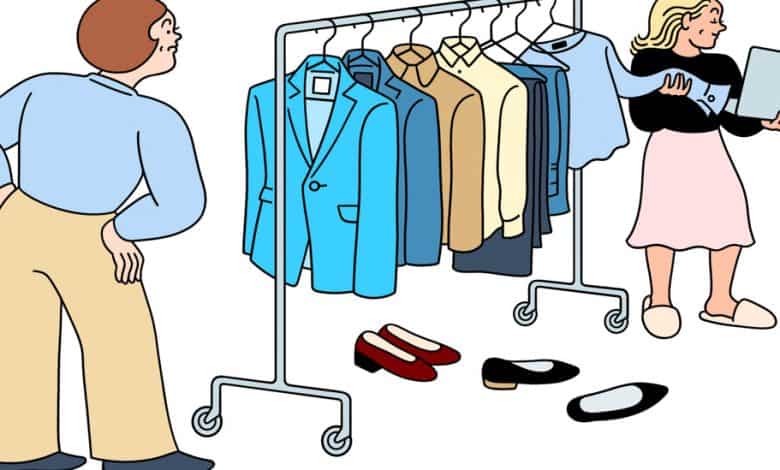My Friend Asked for Clothing Donations and Then Sold Them on Poshmark. Do I Confront Her?

My Friend Asked for Clothing Donations and Then Sold Them on Poshmark. Do I Confront Her?

By Kwame Anthony Appiah

Credit…Illustration by Tomi Um
My friend is a high school teacher in a low-income area. She always shares tearful stories of her students’ need for food, school supplies, professional clothes for job interviews and so on. Over the years, I’ve donated food, snacks and clothing for her to give to her students. A few months ago, my friend said there was a job fair coming up at the school and the students needed clothes; she would take anything we could donate. I went through my closet and gathered professional blazers, skirts, pants and blouses and gave them to her. Long story short: I decided to start an account on Poshmark to sell my family’s old clothes. When I looked up some of my friends’ closets on the site, I discovered my teacher friend had posted and sold all the items I gave her for her students! Not just one or two items — all 20! What’s the right thing to do? Do I confront her, or do I ignore the fact that those kids never got the donated items? Once a donation has been made, what is the ethical expectation?
— Name Withheld
From the Ethicist:
Diverting donations from their intended beneficiaries, if that’s what happened, is stealing — and stealing from the poor at that. Part of ethics is holding people accountable for their serious wrongdoing. True, she’s a friend, but what kind of friend betrays your trust like this? Even if she had good reasons (maybe your clothes were more valuable to these students as cash?), she owed you the truth. You should tell her what you’ve found. If there’s a compelling explanation — an explanation not only for her actions but for misrepresenting them to you — you might be able to resume your relationship. Seething in silence, though, just means you’ll have your peace of mind stolen too.
A Bonus Question
My daughter wants to change colleges, and she asked a professor for a letter of recommendation. We received the letter, and it strikes me as overly positive. My daughter has worked hard to get decent grades, but from the contents of this letter, you would think she was the most gifted student ever to attend that college. Basically I don’t believe that what her professor is saying is true. Maybe he’s just trying to be helpful, or possibly he used ChatGPT, but I feel uneasy. Should I submit it anyway? — Name Withheld.
From the Ethicist:
I’d have thought that the better practice was to send letters of recommendations to the college in question, not to the student. But however this letter was produced — whether it involved ChatGPT or a Ouija board — the professor has offered it as his view. You haven’t been in the classes and seen the work your child has done. Your daughter asked for a letter expressing his judgment, not a letter reporting yours. If the letter is implausible on its face, of course, it might not help your daughter’s chances of getting the transfer, and, I suppose, could even hurt. That would be a reason to worry about submitting it. But your doubts about the letter’s accuracy are not a sufficient warrant for concern. Letters of recommendation are so often hyperbolic that a dry-as-dust articulation of your daughter’s qualities might be read as unenthusiastic. (British letters of recommendation tend to be several degrees cooler than their American counterparts.) Hyperbole is a figure of speech: an overstatement that’s meant to be recognized as such. So I wouldn’t assume that your daughter’s professor aimed to be dishonest. He may simply have a better sense of the calibration of such letters than you do — just as the wised-up admissions folk on the receiving end will.
Thoughts? If you would like to share a response to today’s dilemma with the Ethicist and other subscribers in the next newsletter, fill out this form.
